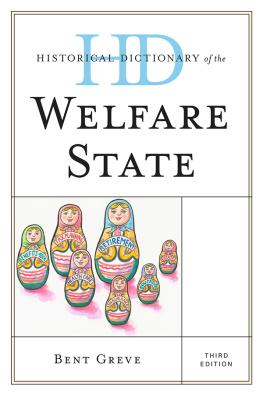Thank you for downloading this Simon & Schuster ebook.
Get a FREE ebook when you join our mailing list. Plus, get updates on new releases, deals, recommended reads, and more from Simon & Schuster. Click below to sign up and see terms and conditions.
CLICK HERE TO SIGN UP
Already a subscriber? Provide your email again so we can register this ebook and send you more of what you like to read. You will continue to receive exclusive offers in your inbox.
We hope you enjoyed reading this Simon & Schuster ebook.
Get a FREE ebook when you join our mailing list. Plus, get updates on new releases, deals, recommended reads, and more from Simon & Schuster. Click below to sign up and see terms and conditions.
CLICK HERE TO SIGN UP
Already a subscriber? Provide your email again so we can register this ebook and send you more of what you like to read. You will continue to receive exclusive offers in your inbox.
F OR MY GRANDCHILDREN ,
W ILLIAM AND S ARAH L ICCIONE
AND
A NDREW AND A ARON T RATTNER
What a pity it is to see a proper gentleman to have such a crick in his neck that he cannot look backward! yet no better is he who cannot see behind him the actions which long since were performed. History maketh a young man to be old without either wrinkles or gray hairs; privileging him with the experience of age, without either the infirmities or inconveniences thereof. Yea, it not only maketh things past, present; but enableth one to make a rational conjecture of things to come. For this world affordeth no new accidents, but in the same sense wherein we call it a new moon, which is the old one in another shape, and yet no other than what hath been formerly. Old actions return again, furbished over with some new and different circumstances.
T HOMAS F ULLER
The Historie of the Holy Warre ,
1639
You often say, I would give, but only to the deserving.
The trees in your orchard say not so, nor the flocks in your pasture.
They give that they may live, for to withhold is to perish.
Surely he who is worthy to receive his days and his nights, is worthy of all else from you.
And he who has deserved to drink from the ocean of life deserves to fill his cup from your little stream.
And what desert greater shall there be, than that which lies in the courage and the confidence, nay the charity, of receiving?
And who are you that men should rend their bosom and unveil their pride, that you may see their worth naked and their pride unabashed?
See first that you yourself deserve to be a giver, and an instrument of giving.
For, in truth, it is life that gives unto lifewhile you, who deem yourself a giver, are but a witness.
K AHLIL G IBRAN , The Prophet
From The Prophet by Kahlil Gibran. Copyright 1923 by Kahlil Gibran and renewed 1951 by Administrators C.T.A. of Kahlil Gibran Estate and Mary G. Gibran. Reprinted by permission of Alfred A. Knopf, Inc.
Preface to the Sixth Edition
 The first question most readers undoubtedly will ask is, why publish a new edition of From Poor Law to Welfare State at this time? While there are a number of reasons for doing so, there are two compelling, although related, answers to that question. First, the previous edition of this work ended on a rather upbeat, or optimistic, note. President Bill Clinton had just introduced his sweeping proposal to overhaul the nations health care system, and while many questions about that undertaking remained unanswered, I wrote that most Americans reacted favorably to the plan and looked forward to the upcoming debate over its specifics. Furthermore, to again quote from the last edition, there seemed to be bi-partisan support, in and out of Congress, for the notion that the time had come for some sort of universal national health insurance scheme. Obviously, I was wrong, and I am glad to have the opportunity to correct myselfand to explain why I was mistaken.
The first question most readers undoubtedly will ask is, why publish a new edition of From Poor Law to Welfare State at this time? While there are a number of reasons for doing so, there are two compelling, although related, answers to that question. First, the previous edition of this work ended on a rather upbeat, or optimistic, note. President Bill Clinton had just introduced his sweeping proposal to overhaul the nations health care system, and while many questions about that undertaking remained unanswered, I wrote that most Americans reacted favorably to the plan and looked forward to the upcoming debate over its specifics. Furthermore, to again quote from the last edition, there seemed to be bi-partisan support, in and out of Congress, for the notion that the time had come for some sort of universal national health insurance scheme. Obviously, I was wrong, and I am glad to have the opportunity to correct myselfand to explain why I was mistaken.
Second, and closely related, I also misunderstood, or placed too much faith in, President Clinton and his commitment to helping the needy by getting to the heart of their problemsand using the federal government to help resolve them. I really believed, I am somewhat embarrassed to admit, that Clinton,
unlike his immediate predecessors, who either did not recognize the nations social problems or refused to face up to them... certainly admits that the nation has many such problems,... that it cannot afford to ignore them,... and that the public sector can and should help to resolve them. Just as our colonial ancestors viewed their villages and towns as communities [I wrote] he cries out for the government again to become an instrument for the improvement of its citizens lives, especially by providing at least a minimal level of social welfare for all of its inhabitants.
Again, I proved to be in error. Indeed, as readers already may know, or will discover from reading the new last chapter of this bookthe title of which I changed from Toward a New Domestic Order? to Looking Forwardor Backward?just the opposite occurred. Thanks to what is referred to as the welfare reform act of 1996, signed into law by Clinton (just prior to the upcoming presidential election) over the protests of a number of concerned citizens, the entitlement to welfare, put into place in America some sixty years ago in the midst of the Great Depression (if not earlier, during the colonial period), has been removed and replaced by the work or starve mentality of an earlier time.
As that measure indicates, social and economic justice is not at the top of the public agenda today. Most Americans no longer wish to entrust government with the power, and the responsibility, to help their needy fellows. Unlike Herbert Gans and a handful of other brave scholars who continue to debunk stereotypes about the poor and deplore the fact that some misguided concepts, especially that of the underclass, have become weapons in the current war against the poor, most Americans once again blame the victim and eschew collective, as opposed to individualistic, solutions to the nations social and economic problems; they certainly do not wish to see their tax dollars used for welfare. And by attacking the welfare system rather than the poverty problem, they have achieved their aims. And while the results of these developments are not yet clear, critics predict that more than 2.5 million citizens, including 1.2 million children, will be thrown into poverty as a result of the change; for reasons discussed in the last chapter of the book, I fear they are correct (although, of course, I hope they are not).
In any event, in addition to the changes alluded to above, I worked hard to revise the text in numerous other ways in order to clarify certain points, as needed, to update some interpretations, where appropriate, and to include new information, where useful. Rather than spell out all those changes, I especially call the readers attention to the chapters Child Welfare, where I inserted a good deal of additional material on recent developments in that field, and War on the Welfare State, where I added quite a bit of material on matters of race, especially the publication of Charles Murray and Richard Herrnsteins The Bell Curve (1994), and its implications for social welfare policy. Also, as in the past, I have revised and updated the bibliographies at the end of all of the chapters.
Before closing, let me again take the opportunity to thank The Free Press, especially Philip Rappaport and Caryn-Amy King, with whom I worked most closely, for bringing out a new edition of this work, for allowing me to revise the entire manuscript in any way I saw fit, and for continuing to reprint the prefaces to all the previous editions. The latter is a very costly and unusual gesture which I greatly appreciateand which, as I pointed out in the preface to the previous edition, will be of great benefit to the readers; I therefore again urge them to read all of the prefaces.
Next page







 The first question most readers undoubtedly will ask is, why publish a new edition of From Poor Law to Welfare State at this time? While there are a number of reasons for doing so, there are two compelling, although related, answers to that question. First, the previous edition of this work ended on a rather upbeat, or optimistic, note. President Bill Clinton had just introduced his sweeping proposal to overhaul the nations health care system, and while many questions about that undertaking remained unanswered, I wrote that most Americans reacted favorably to the plan and looked forward to the upcoming debate over its specifics. Furthermore, to again quote from the last edition, there seemed to be bi-partisan support, in and out of Congress, for the notion that the time had come for some sort of universal national health insurance scheme. Obviously, I was wrong, and I am glad to have the opportunity to correct myselfand to explain why I was mistaken.
The first question most readers undoubtedly will ask is, why publish a new edition of From Poor Law to Welfare State at this time? While there are a number of reasons for doing so, there are two compelling, although related, answers to that question. First, the previous edition of this work ended on a rather upbeat, or optimistic, note. President Bill Clinton had just introduced his sweeping proposal to overhaul the nations health care system, and while many questions about that undertaking remained unanswered, I wrote that most Americans reacted favorably to the plan and looked forward to the upcoming debate over its specifics. Furthermore, to again quote from the last edition, there seemed to be bi-partisan support, in and out of Congress, for the notion that the time had come for some sort of universal national health insurance scheme. Obviously, I was wrong, and I am glad to have the opportunity to correct myselfand to explain why I was mistaken.